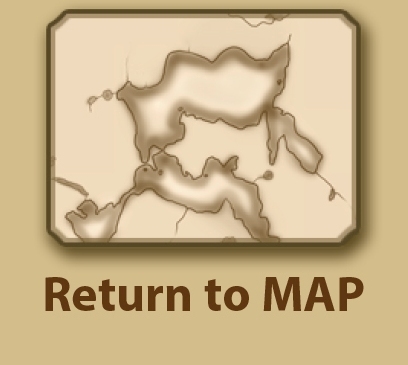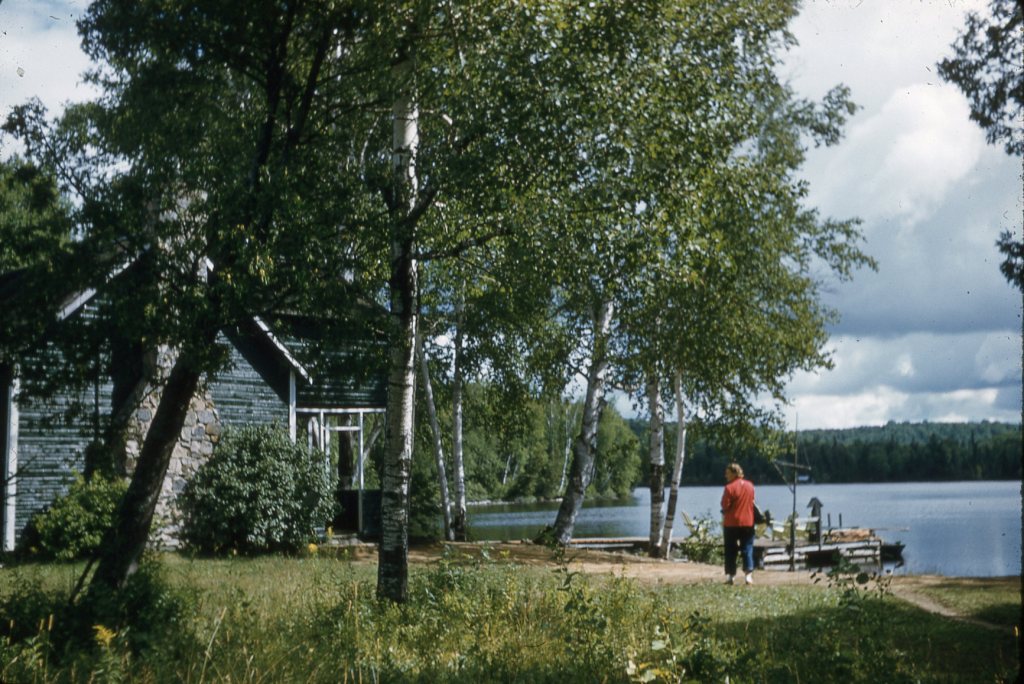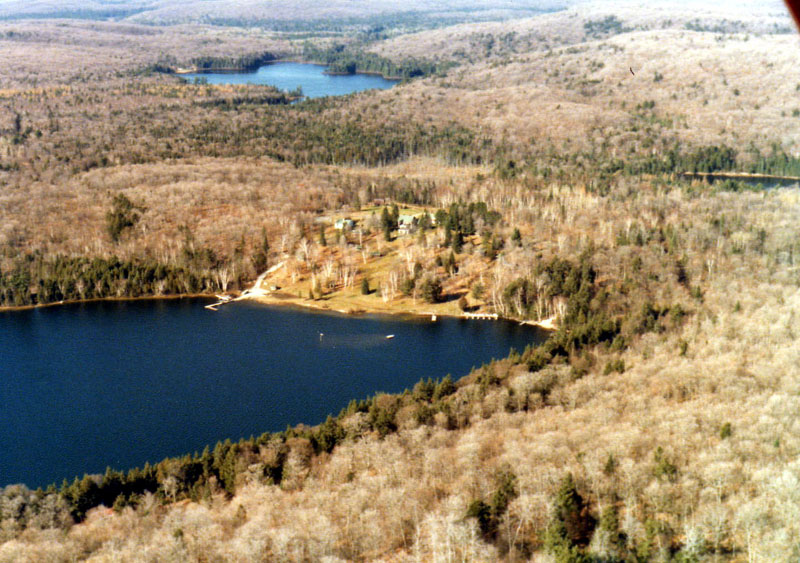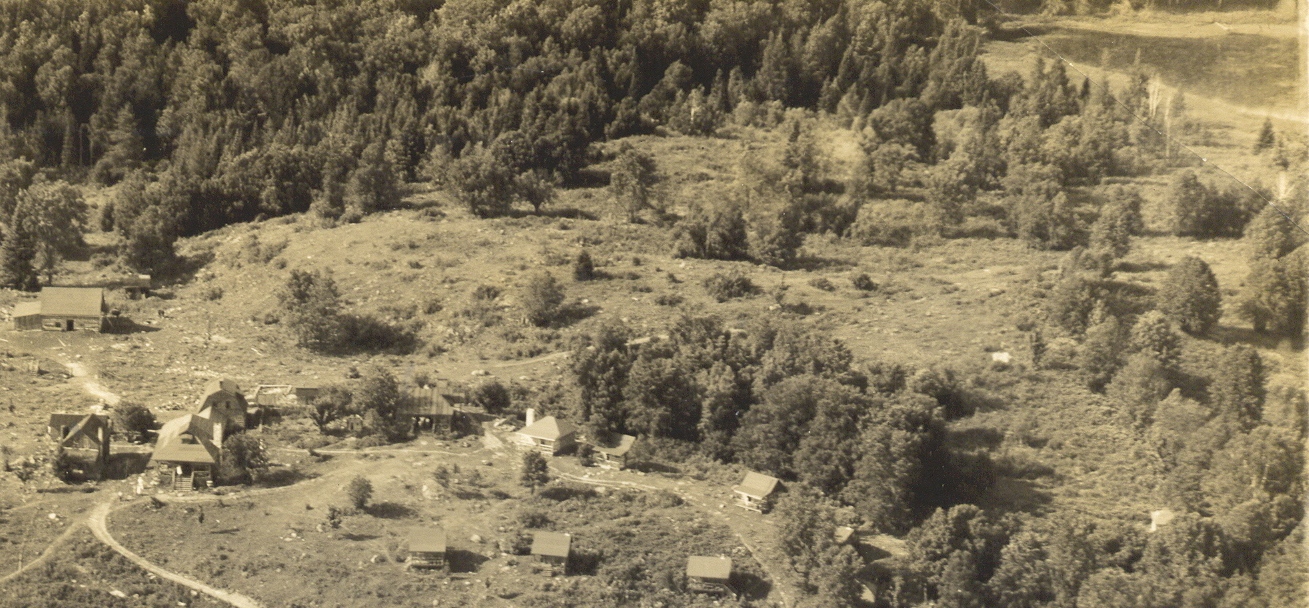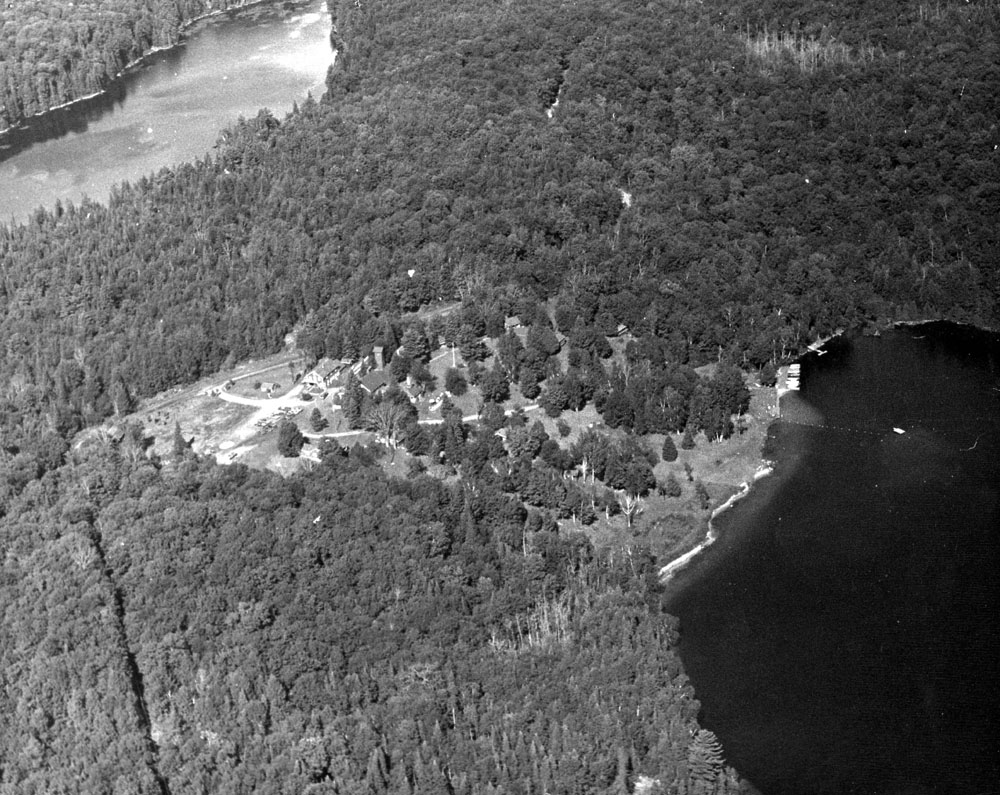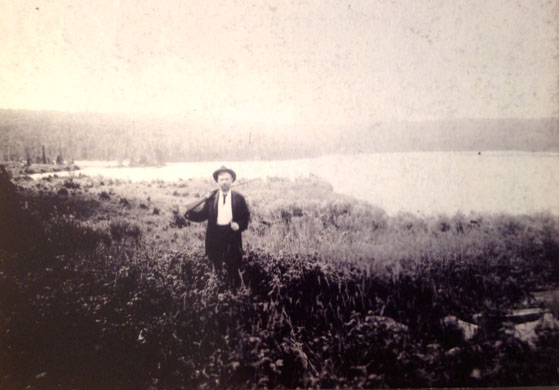 |
|
Henry Thomas Benson, hunting near his homestead on the northern shore of Benson Lake ca. 1880 (Richard Hogg)
|
The small lakes surrounding Bella and Rebecca are part of the Big East River watershed, and many were named for the homesteaders who settled on their shores.
Benson Lake
Henry and Susan Benson settled Lots 11 and 12, Concession 6, surrounding the eastern part of Benson Lake. In 1879 John Bahen settled two nearby lots (Lots 14 and 15, Concession 6) around what is currently called Little Benson (originally called Bahen Lake), which flows into the western side of Benson Lake. As farming was difficult, these settler families along with other neighbouring families lumbered together and shared the adjoining lumber mill (Bahen’s sawmill). The Bensons sold their land and left in 1895. Later, Richard Hogg and Fran Garofalo acquired these three original Crown Patents, along with seven others along the southern shore of Hutcheson Bay, Rebecca Lake, to preserve these lands for their children and future heirs.
Brooks Lake
Edgar Joseph Brooks and his second wife Elizabeth Jane May followed family members to Sinclair, taking up lots along the Bobcaygeon line after their marriage in 1882. No relation to the Edgar Brook of Brook's Mill (Brookie), Edgar Brooks was born in 1854 in Granton, Ontario (northwest of London), where his parents had settled after emigrating from England. Edgar and his first wife Esther Baines had one son, Gilbert, but Esther and a second child died in 1880. Edgar left Gilbert with Esther's family and went with his brother Francis to the area that is now Novar.
Elizabeth’s relatives George May and R. W. May had settled lots in Concession A, backing onto what became known as Brooks and Dotty Lakes, by 1877. Edgar held Lot 18 in both Concessions A and B, as well as two lots in Elizabeth’s name at the south of Swain’s Bay. Elizabeth and Edgar Brooks had 13 children together. Their original homestead was moved from Brooks Lake to the Longhouse property on Dotty Lake in about 1945, where it is still used as a recreation building.
When Andrew and Elizabeth Hart vacated their Bella Lake homestead, Edgar moved his large family to that location to take over as postmaster for the nomadic Antioch post office. In 1893, he purchased William Hood’s general store between Dotty and Oxbow Lakes in Finlayson Township and moved the post office to that location for several years. After resigning as postmaster, Edgar purchased a sawmill on Peninsula Lake, and he and his family eventually converted it to a tourist house called Wequash – now the site of Tally Ho Inn.
Dotty Lake
George May eventually offered his property in Concession A to the Muskoka Wood Manufacturing Company. Lot 19 remains with the Hutcheson family today, but Lot 20 was transferred to William Edgerton in 1934. In the late 1930s it was the site of Lolomi, a summer home and camp run by Max Hoffland, on the shore of Dotty Lake. The property, renamed Longhouse, was subsequently acquired by the Kittinger Furniture Company of Buffalo, and they have enjoyed it as a private camp ever since.
Long Lake – later called Dotty – was also the location for several early hunt camps, including that of R. J. Hutcheson. “At Long Lake camp, on the old McBrien property,” wrote the Huntsville Forester in 1912, Mr. R. J. Hutcheson had a party this year composed [of] his sons, Frank and Bertram, Messrs. Eric Thompson, J. E. Mosley, Myrel Mosley, Harry Kribbs, jr., and Mr. Wilcox of Aurora. Mrs. Mosley and Mrs. Hutcheson were also in the camps of their respective parties. Four large deer were secured.”
Heck’s Lake
Heck’s Lake bears the name of Robert Hector McAlister, who settled on Lots 3 and 4, Concession 10, in 1880. Hector was the son of Michael McAlister, one of the New Connexion Methodists from Durham County who settled in Sinclair with his family when it was opened for settlement. Michael was an influential member of the church and the Hillside community, and his son’s presence north of Bella Lake may have influenced the first location of the Antioch post office in 1882 and the establishment of an Antioch Appointment of the Methodist Church several years thereafter. Both appointments were short-lived, as families left the area for better prospects elsewhere. In 1887, two years after his father’s death, Hector sold his holdings and relocated to Michigan with members of his extended family.
Jackson Lake
An elongated pond on a small stream, Jackson – also referred to as Mud or Beaver – Lake recalls Mabel Hart’s first husband, Duncan Jackson, who was one of the New York group to set up a fishing camp on the original Hart farm around 1901. In early years, the land was cleared back to the pond – the Bella Lake shoreline left wooded. In more recent times this character has been reversed, and trees have reclaimed the back lot. Beaver were active on Jackson Lake until very recently; after an untended dam burst in the early spring of 2018, the reduced pond has indeed taken on the character of a “Mud” lake.
Mansell Lake
William Mansell purchased the Sunset Farm property, Lots 5 and 6, Concession 6, on Rebecca Lake from Elizabeth Hart, the widow of Andrew Hart, in 1912, and subsequently bought other adjoining properties. Mansell Lake and the surrounding forests and wetlands are private and are managed by Mansell Properties Ltd. for natural history elements, much like the Antioch Conservation Area. Motorized vehicles (boats, snowmobiles, off-road vehicles) are not permitted at any time of the year.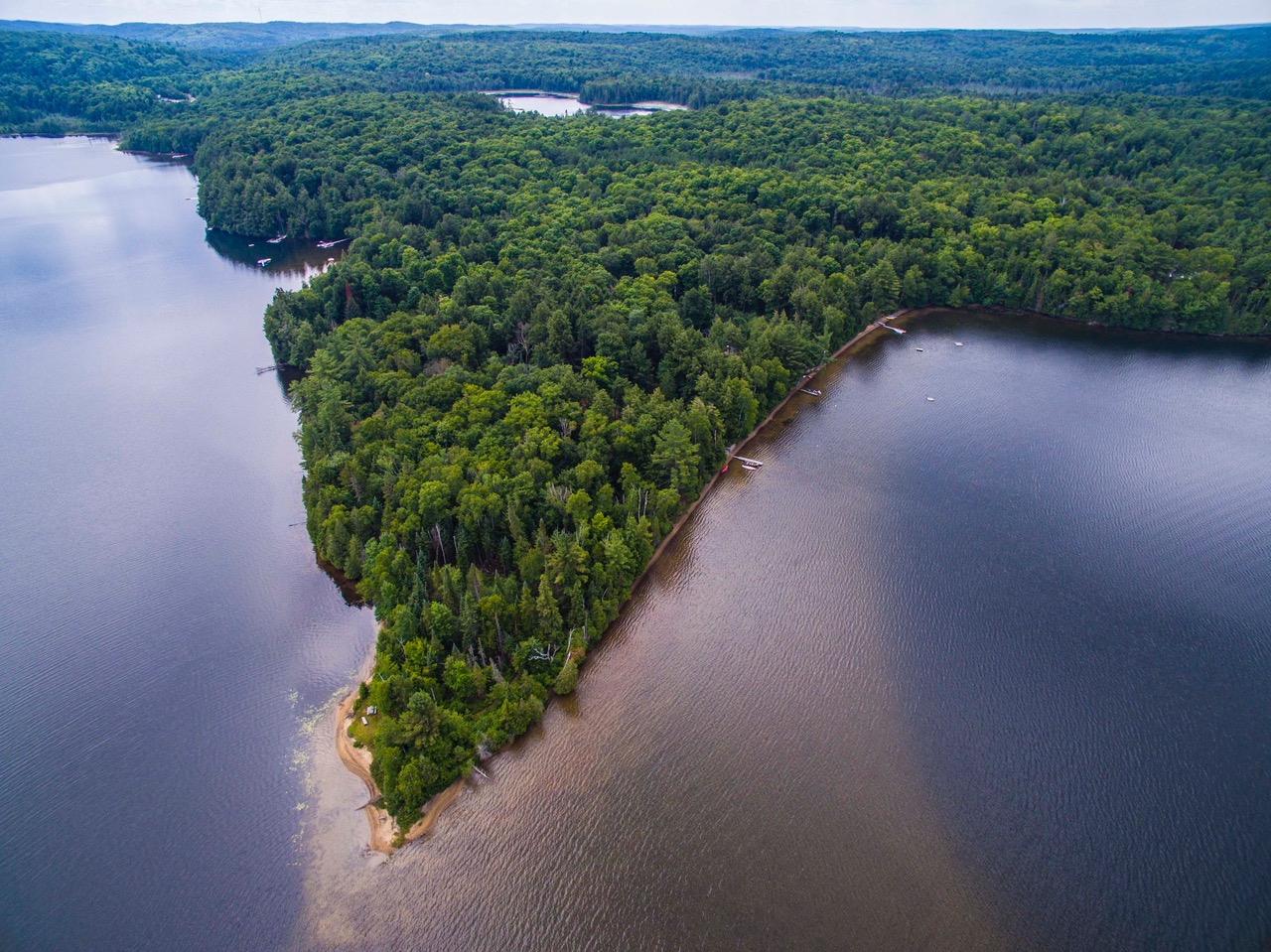 |
From Rebecca Lake, looking over Mansell’s point and toward Mansell Lake, August 2016. The view has changed since the tornado of 2017. (Blake Kimmel) |
|
Loon Lake
Loon Lake was not likely named by settlers in the area, but more probably by the hunters who established their club there in about 1905. The organization that became the Loon Lake Hunt Club began in 1896 as a group of hunters from Brantford, hunting first from the Harts’ Bella Lake farm property and then from a location on the East River. The Bravender, Hammell, and Bloss settler lots around Loon Lake form part of the property of the Loon Lake Hunt Club, which is still in operation today.
Brooks, Rick, personal communication, November 2018 and July 2, 2019.
Huntsville Forester, “With the Hunters,” November 21, 1912, p. 1.
Hutcheson, Bob, personal communication, June 2019.
Julian, Marcia, personal communication, May 2019.
Kimmel, Wendy, personal communication, May 2019
Mansell, W. D., and Carolyn Paterson, eds. Pioneer Glimpses from Sinclair Township, Muskoka (Peterborough: asiOtus Natural Heritage Consultants, Barbara Paterson Papers, 2015).
